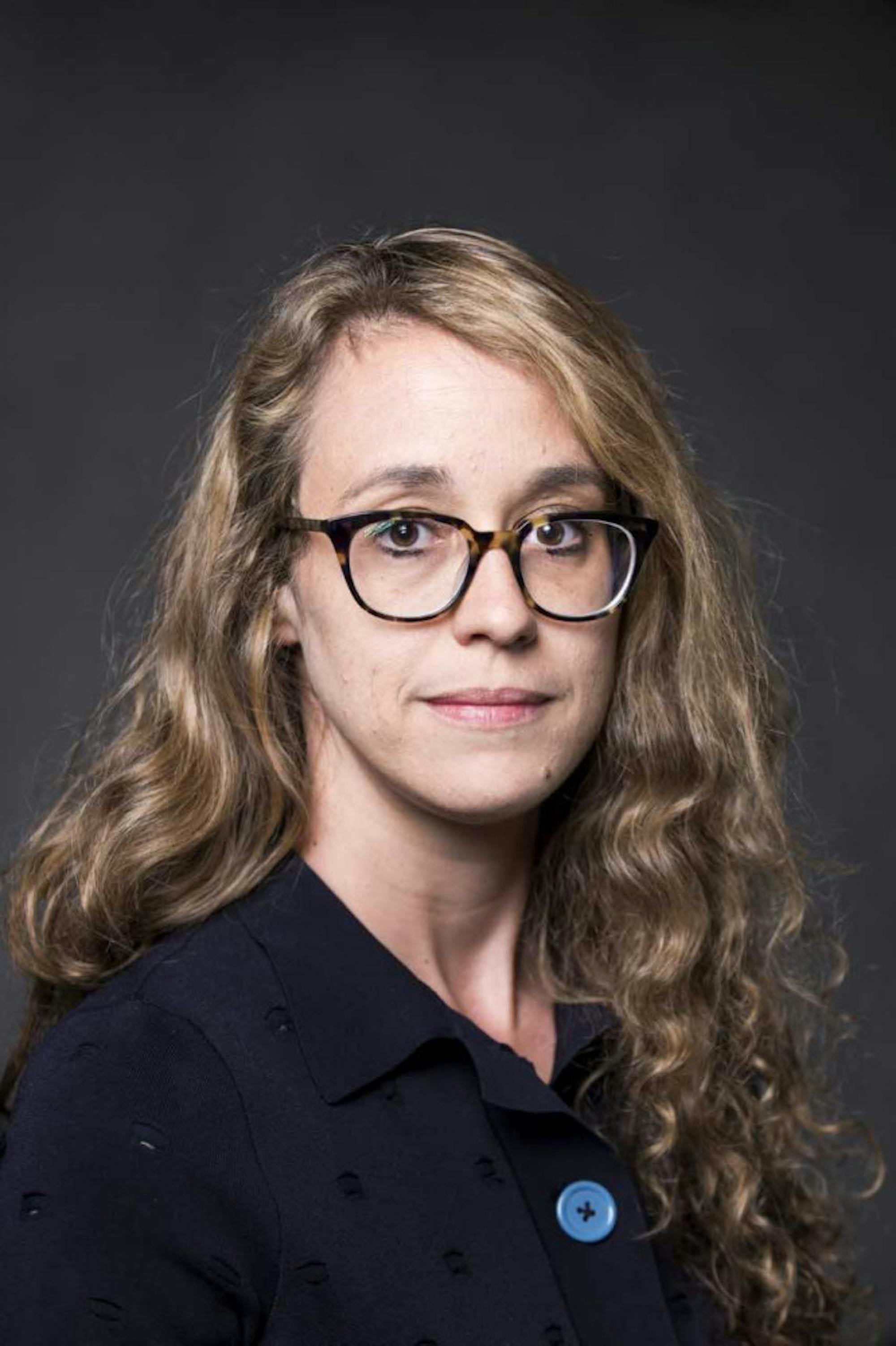Associate Professor of Religion Ken Garden and Assistant Professor of German Annie Pfeifer gave a joint talk titled "'Wir schaffen das'?: Germany Three Years after the Refugee Crisis of 2015," in front of a full crowd in the Olin Center's Laminan Lounge on Monday.
The talk explored Germany's shifting political landscape as a result of the groundswell of refugees that the country has absorbed since the start of the European migrant crisis. Its title, "Wir shaffen das," or "We will manage it," referred to German Chancellor Angela Merkel's 2015 assertion that Germany would take in immigrants as they came, according to Garden.
Garden began by explaining Germany's historical relationship with immigrants. In 1961, 16 years after the end of World War Two, the recovering German economy turned to immigrants as a source of labor. But Garden pointed out that even then, not all were eager to embrace these newcomers. He quoted Swiss playwright Max Frisch: “We wanted workers, but we got people instead.”
While the current refugee influx was not prompted by internal economic factors, Garden explained that Merkel was still ready to take in the refugees. Merkel believed that if Germany let asylum seekers into the country, they would eventually distribute across the European Union. But other countries balked at Germany's terms, and many refugees stayed in Germany.
Refugees, many of whom were fleeing from predominantly Muslim countries, have caused high-ranking members of the German government to criticize the existence of Islamic faith in German society. Garden pointed to a March incident in which Merkel directly contradicted her new minister of the interior, Horst Seehofer, after Seehofer said, “Islam does not belong to Germany. Germany is characterized by Christianity.”
All of this came on the heels of the rise of a far-right party, Alternative für Deutschland (AfD), which Garden explained relied on anti-immigrant sentiments to gain traction in German politics. The party won the third-most seats in the German parliament in the 2017 national election.
Pfeifer displayed samples of AfD's ultra-nationalist, anti-immigrant political posters, which the party plasters in public places. One subway poster translated to: “New Germans? We'll make them ourselves.” The image was of a pregnant white woman holding her stomach. Another sign, which depicted two bikini-clad women, read: “Burkas? We prefer bikinis.”
The posters' aggressive messaging took Oge Ezekwenna, a first-year in attendance, by surprise.
“I found the posters and the party propaganda to be striking as many of them use phrases and images not often seen or used in mainstream politics here in the states," Ezekwenna said in an electronic message to the Daily. "But over in places such as Germany, seeing xenophobia posters on the daily commute to work is a daily occurrence."
Pfeifer explained that these signs can be seen around Germany, and that the populist message is appealing to large portions of the country. A new poll released by the German newspaper Bild ranked AfD as the second-most popular party in the country, behind only Merkel's Christian Democratic Union party.
Garden noted that the term Biodeutsch, or an “organic German," has recently gained traction, reflecting a nativist trend. Germany does not allow its citizens to hold a second, non-EU citizenship, and Turkish immigrants to Germany have a particularly difficult time navigating the nationality laws.
Garden said that discrimination against Turkish individuals is well exemplified by the case of soccer star Mesut Özil, a German citizen of Turkish heritage who left the German National Team after facing heavy criticism and allegations of disloyalty over a meeting he had with Turkish President Recep Tayyip Erdoğan.
Özil was quick to point to other National Team members with non-German origins whose loyalty was never questioned, despite one of them being photographed with Russian President Vladimir Putin.
This is one of the first times since World War Two that nationalism is acceptable again in Germany, Garden said. In August, people sang the national anthem during anti-immigration protests, something rarely done due to its link to Nazi Germany. Björn Höcke, an AfD party leader, has said that Germany needs to take a "180-degree turnaround" on how it views history. “We Germans are the only people in the world that have planted a monument of shame in the heart of their capital,” Höcke said in reference to the Memorial to the Murdered Jews of Europe, located in the heart of Berlin.
To be sure, these are politically uncertain times for Germany, Pfeifer said. Yet, just a few of months ago, 5,000 people who turned out for an AfD rally were drowned out by nearly 20,000 counterprotesters.
Professors discuss resurgence of nationalism in Germany

Tufts associate professor of German Annie Pfeifer poses for a photo. (Courtesy Annie Pfeifer)





